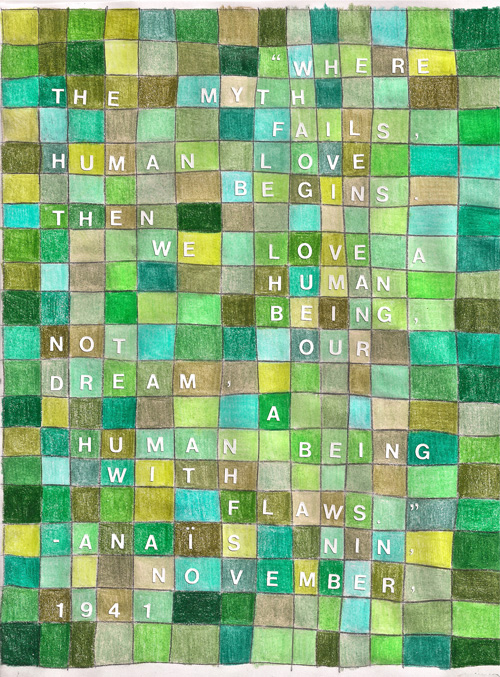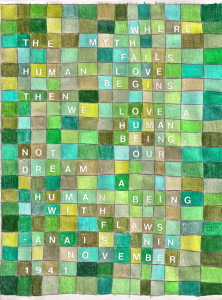When it’s comes to any kind of relationship, we all have something to say. It doesn’t matter how experienced you are, for sure you have some ideas on love and you share them in many different ways. With so much discussions going around this topic, a mindful, realistic and integral perspective is something that is missing. I’ve been looking for such a perspective and I came across an approach that banished silly thoughts and discomfort, and brought me a peaceful and love-connected, yet, not definitive (this is work in progress definition) idea that I think is worth spreading. In one phrase: love has to do with discipline and practice more than anything else.
Some of the things that meditation brings into life are consistency and discipline. You have to put yourself on the track to meditate daily, to keep your mind under observation during the day, to develop and keep a healthy and balanced routine. And it turns out the consistency that meditation develops in ourselves is key to build and develop anything in our lives – to start and maintain a business, to get a higher degree, to build happy, healthy and long-lasting relationship.
“Where the myth fails, human love begins. Then we love a human being, not our dream, but a human being with flaws.” Anaïs Nin.
Image Credit: Brain Pickings.
Going a bit deeper, let’s think about love as a big concept, big idea, similar to peace, democracy, or freedom etc. The way that Western philosophers have been treating those ideas is by thinking about them, of course, and writing hard-to-read books with complex vocabulary and very smart, but often incomprehensible concepts for many of us. Do not get me wrong, I like philosophers very much… And if you don’t have a clue about what I am talking about, you can check out “A Lover’s Discourse: Fragments” by Roland Barthes to get an example of how Western Philosophers treat the big idea of love. The Eastern philosophers treat those big concepts or ideas in a different way: they develop actions and practices to understand these ideas. Sen no Rikyu, for example, developed the “Tea Ceremony” during 16th Century, in Japan, and it turned out to be not only a consoling and therapeutic way to find peace, balance and harmony, but also a way to make people understand about those big concepts (harmony, tranquility, simplicity) that otherwise would simply be ideas. This practice or ceremony can create the experience of these big concepts to make them more alive for us, to create the space
The Eastern philosophers treat those big concepts or ideas in a different way: they develop actions and practices to understand these ideas. Sen no Rikyu, for example, developed the “Tea Ceremony” during 16th Century, in Japan, and it turned out to be not only a consoling and therapeutic way to find peace, balance and harmony, but also a way to make people understand about those big concepts (harmony, tranquility, simplicity) that otherwise would simply be ideas. This practice or ceremony can create the experience of these big concepts to make them more alive for us, to create the space in ourselves to receive those subtle and delicate feelings and thus, get a deeper understanding of life and ourselves.
Philosophers like Rikyu taught us that there is a sympathy between the big ideas and our daily and simple actions – like drinking tea or sitting to “do nothing”-, and that we have to create the space, prepare the soil, to have a real and meaningful, even life-changing, experience doing them. How can we apply these teachings and consistency in our relationships? Well, if you feel “out of the love zone” or that your relationships could be improved, start creating actions that lead to the feeling/idea of love for yourself first. And then do the same for others. Develop consistency in your relationships, be disciplined with yourself – self-development is a discipline of
Develop consistency in your relationships, be disciplined with yourself – self-development is a discipline of love, if you think carefully about it. Be aware of your words and tone every time you reply a message or pick up the phone to talk to your loved ones, find ways to delay your anger, create a little routine to make others feel your love – preparing a good cup of coffee in the mornings, write a weekly love-poem or love-note, prepare a nice bath before going to sleep, cook for them on regular basis, be less anxious, give others more time to express themselves.
Opening the space to have the experience of love is something that we all have to do in our daily lives. We all know that words are good, but not good enough to demonstrate love. Big actions from time to time are pretty cool and admirable – astonishing weddings, great anniversary celebrations, amazing birthday gifts – and we may feel loved and appreciated for a while. Still, those constant and simple actions added into our daily life are the ones who give us that cozy feeling and certainty that we are actually appreciated and loved for those who are around us. And we can admit, maybe in a shy-mood, that we need the experience of love more than love-songs or romantic novels or movies, it is just that sometimes we don’t know how to get it. We need some awareness, discipline and practice to bring into the presence what we look for. Perhaps only the practice of love will lead us to real love.








